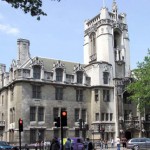Law Weblog
Supreme Court – significant moment for Scotland’s legal system
Saturday 18 June 2011 at 10:53 am | In News | Post CommentFor the first time (31 May 2011) the Supreme Court in London has, in effect, directed a Scottish court to quash a criminal conviction.
Alrticle XIX of the Act of Union 1707 states that courts in Westminster “shall have no power to Cognosce Review or Alter the Acts or Sentences of the Judicatures within Scotland or stop the Execution of the same.”, this has been followed for all Scottish criminal cases, since 1711 (but ignored in civil cases).
Now the position appears to be that the Supreme Court will hear criminal cases too, if there is an issue of “constitutional importance” or where human rights law is involved.
Criminal cases heard by the Supreme Court include the case of Nat Fraser v Her Majesty’s Advocate 2003 – an appeal against a sentence for murder – and an appeal by Luke Mitchell against the conviction for attempted murder of his 14 year-old girlfriend. Both cases follow Cadder v HMA [2010] UKSC 43 which involved a detainee being interviewed by the police without access to legal advice.
Nat Fraser claimed he had not had a fair trial and argued there had been an infringement of Article 6 of the European Convention on Human Rights.
The Supreme Court agreed, and ordered the Scottish High Court of Justiciary to quash the conviction and ordered a new trial
Some observers consider that the justices were asked only to determine whether Mr Fraser had received a fair trial under European law not whether the conviction should be quashed. Which would mean the court was “supreme” in Scottish criminal matters at the same time being “effectively bound” to quash the conviction.
The Scottish Government has created an Expert Group to consider the jurisdiction of the UK Supreme Court in criminal matters which will consist of Lord McCluskey, Sir Gerald Gordon QC, Sheriff Charles Stoddart and Professor Neil Walker.
In a press release the Supreme Court said:
The Supreme Court recognises that it has no jurisdiction to consider the test which applies in Scots law to fresh evidence appeals which do not involve a devolution issue. This case, however, involves an issue of non-disclosure, which raises the question whether the trial complied with Article 6 ECHR and which is a devolution issue. By refusing the Appellant’s devolution minute, the Appeal Court did “determine” a devolution issue and the Supreme Court has jurisdiction to hear an appeal against that determination:
No Comments yet
Sorry, the comment form is closed at this time.
Powered by WordPress with Pool theme design by Borja Fernandez.
Entries and comments feeds.
Valid XHTML and CSS. ^Top^
